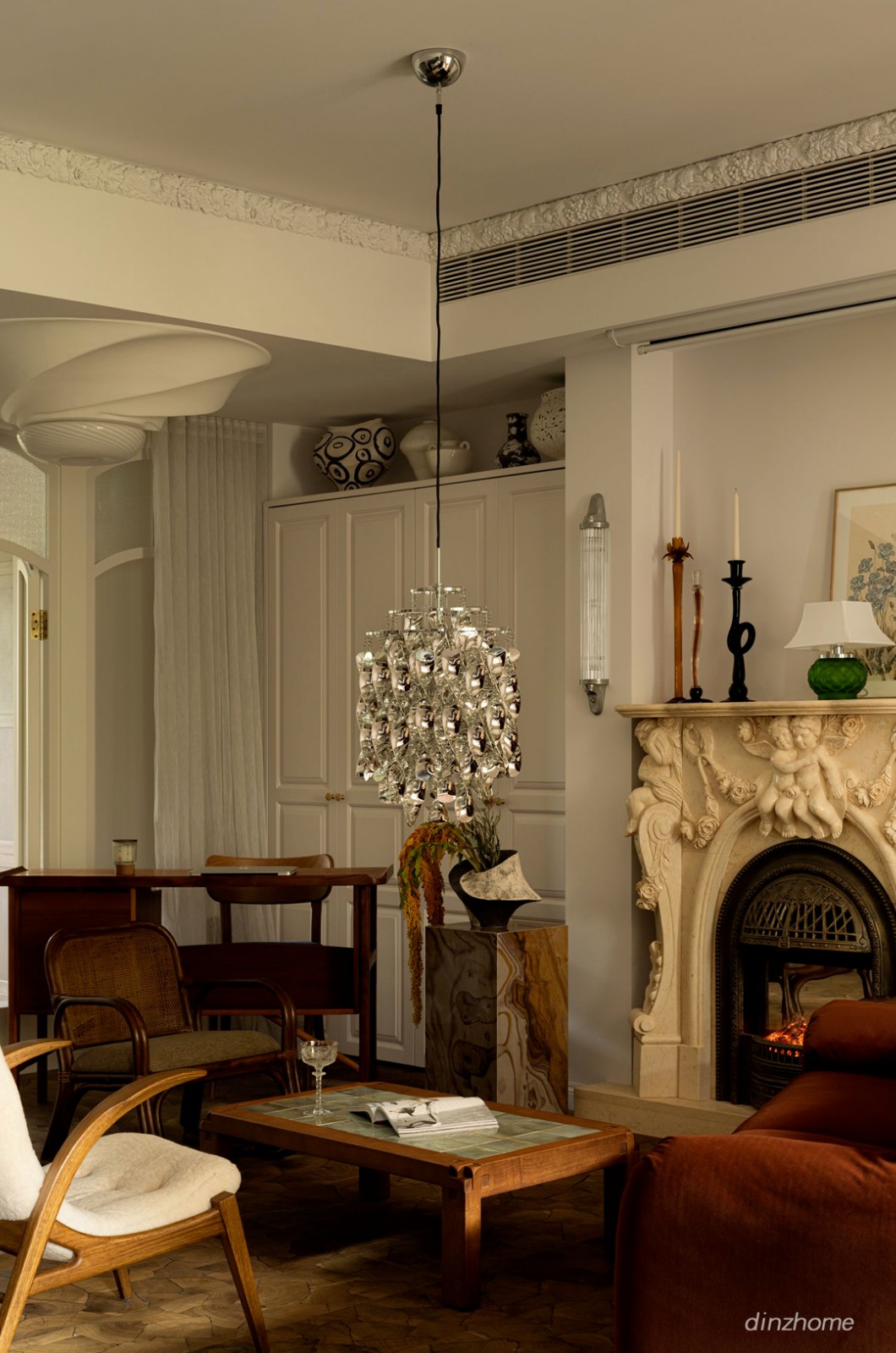AD Classics Strawberry Vale Elementary School Patkau Architects
2015-08-03 08:00
A brise soleil overhangs the front entrance and administrative offices. Image © Patkau Architects / James Dow
前面的入口处和行政办公室上挂着一层厚厚的太阳。图像(帕托建筑师/詹姆斯·陶氏)
坐落在不列颠哥伦比亚省维多利亚市郊的草莓谷小学是帕托建筑师哲学的象征。这所学校建于1995年,坐落在一个突出的地质裂谷旁,加上对周围土著植物群的热爱,这使得这座建筑能够引导居住者专注于当地的自然历史,而这一历史早在帕特库斯人的介入之前就已经存在了。宽阔的窗户打开进入建筑物内的室外接缝,视觉和空间上将最里面的区域直接连接到室外。在培养这种地理空间意识的过程中,学校体现了建筑师对受建筑影响的土地和人的独特特征的关注。这也使建筑能够在学校发挥积极的教学作用,鼓励学生参与自然和环境。
Standing on the outskirts of Victoria, British Columbia, the timber-clad Strawberry Vale Elementary School is emblematic of Patkau Architects’ philosophy. Completed in 1995, the school's situation next to a prominent geological rift, coupled with its loving attention to surrounding indigenous flora, allows the architecture to guide the occupant's focus toward a local natural history that long precedes the Patkaus’ intervention. Broad windows open into outdoor seams within the building, visually and spatially connecting the innermost areas directly to the outdoors. In cultivating this geospatial awareness, the school reflects the architects' concern for the unique characteristics of the land and people affected by the building. This also allows the building to play an active pedagogical role in the school, encouraging the students' engagement with nature and the environment.
© Patkau Architects / James Dow
© Patkau Architects / James Dow
当然,对于草莓谷的所有转移注意力的能力,令人眼花缭乱的建筑是一个不可避免的命令存在。就像逐渐形成温哥华岛岩石露头的地质力量一样,学校通道的建筑构造也是一系列类似的戏剧性的俯冲事件。板块-或者在这种情况下,是构造面-轻轻而坚定地相互推动,向上弯曲形成多山的地貌。车顶既动感又不规则,在其俯仰处伪装成一种木桁架结构,融合了传统的建筑技术和独特的创意虚张声势。
Of course, for all Strawberry Vale's ability to divert attention to the site, the dazzling architecture is an inescapably commanding presence. Like the gradual geological forces that helped create Vancouver Island’s rocky outcrops, the architectural tectonics of the school channel an analogous series of dramatic, subductive events. Plates – or in this case, tectonic planes – gently but firmly push against one another, buckling upward to form a mountainous, geomorphic topography. Dynamic and irregular, the roofline disguises in its pitch a timber truss structure, fusing traditional construction techniques and distinctive creative bravado.
© Patkau Architects / James Dow
这个轮廓的顶端是分段循环和机械脊柱,蜿蜒穿过场地,把学校划分成不同的功能。体育馆、图书馆、行政办公室和入口位于这条走廊的北面,学校与社区毗邻。在南侧,毗邻林地,四个教室的教育“豆荚”,每一个分支从走廊和壮观地相互渗透,地点的天然岩石露头。这些集群在学校内部创建了小型的学术团体,两者之间的差距允许光线穿透走廊。
The apex of this contour is the segmented circulatory and mechanical spine that meanders across the site, dividing the school into its various functions. The gymnasium, library, administrative offices, and entrance are located to the north of this corridor where the school adjoins the community. To the south side, abutting the woodlands, educational “pods” of four classrooms each branch off from the corridor and spectacularly interpenetrate the site’s natural rocky outcrops. These clusters create small academic communities within the school and the gaps in between allow light to penetrate into the hallway.
Cross-section through classroom, corridor, and library. Image © Patkau Architects
Model of the circulation and mechanical corridor. Image © Patkau Architects / James Dow
循环与机械走廊模型。图像(帕托建筑师/詹姆斯·陶氏)
特别是在其内部,学校是一个构造宝库。飞行的光束、截短的飞机和暴露的力学在巧妙的复杂性中碰撞。表面是朴素的,但形式上是复杂的,与裸露粗糙的材料调色板相结合,主要由原生木材、金属和玻璃组成。经过深思熟虑的缩放元素和外壳为所有大小的居住者创造了一种亲密的氛围。对于那些聚集在参差不齐的墙壁之间的迷人的学生来说,这座建筑是一个无尽的奇观和冒险之源,它的丰富性既有趣又复杂。
Particularly in its interiors, the school is a tectonic treasure trove. Flying beams, truncated planes, and exposed mechanics collide in artful complexity. Surfaces are unadorned but formally intricate, articulated with the naked rawness of a material palette consisting largely of native lumber, metal, and glass. Thoughtfully scaled elements and enclosures create an intimate atmosphere for occupants of all sizes. For the mesmerized students who gather between its jagged walls, the architecture is an unending source of wonder and adventure, playful yet sophisticated in its richness.
Ramp and stairs in the corridor leading up to the library. Image © Patkau Architects / James Dow
通往图书馆的走廊上的斜坡和楼梯。图像(帕托建筑师/詹姆斯·陶氏)
© Patkau Architects / James Dow
建筑的视觉和空间联系是对可持续发展策略的补充,这些策略既宣扬并实践了对环境的尊重。学校的定位使学校在上课时间最大限度地吸收阳光,并允许它在寒冷的季节接受被动的热量。教堂的窗户和天窗用太阳能覆盖了室内最深的部分,这是通过反射的内部空间来优化的。[1]仔细挑选建筑材料,主要是使用当地可以找到的材料,以减少体现的能量。排水系统对其场地的独特性特别认真,自然地用植物过滤多余的水,并将干净的径流归还给邻近的浅水沼泽地。[2]
The architecture's visual and spatial connections compliment sustainable strategies that both preach and practice a respect for the environment. The orientation of the school maximizes sunlight intake during school hours and allows it to take on passive heat during the cold seasons. Clerestory windows and skylights flood the deepest parts of the interiors with solar energy, which is optimized by reflective interior spaces. [1] Building materials were carefully selected to reduce embodied energy, primarily by using those that could be found locally. And with particular conscientiousness toward the uniqueness of its site, drainage systems naturally filter excess water with plants and return the clean runoff to the adjacent shallow marsh. [2]
The classrooms prioritize a direct visual connection with site's spectacular geology. Image © Patkau Architects / James Dow
教室优先考虑与现场壮观的地质直接视觉联系。图像(帕托建筑师/詹姆斯·陶氏)
© Patkau Architects / James Dow
在1996年在耶路撒冷举行的一次演讲中,该公司的联合创始人之一帕特里夏·帕托(Patricia Patkau)解释了这种对当地特性的敏感性是如何努力应对当代意义上的挑战的。“我们的实践承认,建筑是一个同时影响和受世界影响和影响的综合体的一部分,它是动态变化条件的一部分,其衡量标准在于这种关系.建筑师的作用仍然是发现“思考”的不同方式,建立关系条件,追踪对我们所建事物的移情反应,使建筑成为一种必要的行为,而这种行为对于维持认知和意义是必不可少的。“[3]。
In a 1996 lecture given in Jerusalem, Patricia Patkau, one of the firm's co-founders, explained how this sensitivity to its local particularities strives to counter contemporary challenges of meaning. "Our practice acknowledges that architecture is part of a complex at once affecting and affected by the world, that it is a part of a dynamic changing condition, and that its measure lies in that relationship... It remains the architect's role to discover alternate ways of 'thinking' construction, establishing relational conditions, tracing an empathetic response to the things we build, rendering architecture a necessary act, one that is essential to the maintenance of cognition and meaning." [3]
© Patkau Architects / James Dow
谈到建筑与自然的关系时,她描述了这种方法是如何引导草莓谷与环境对话的:“这种态度的一个重要后果是,建筑并不被视为与自然界不同的东西。就像大自然的力量在建筑上行动一样,我们通过被技术放大的建筑,在自然上发挥作用。”
Speaking on the relationship between building and nature, she describes how this approach informs Strawberry Vale's dialogue with the environment: "An important consequence of this attitude is that architecture is not viewed as something distinct from the natural world. Just as the forces of nature act upon building, we, through building amplified by technology, work upon nature."
Outdoor spaces inserted between classroom "pods" spreads natural light throughout the interior . Image © Patkau Architects / James Dow
在教室“吊舱”之间插入的室外空间将自然光传播到室内。图像(帕托建筑师/詹姆斯·陶氏)
© Patkau Architects / James Dow
[1]Patkau建筑师。“草莓谷学校”最后一次访问是2015年5月13日。
[1] Patkau Architects. “Strawberry Vale School.” Last accessed 13 May 2015.
[2]Patkau,John。“帕托建筑师:对特殊情况的调查。”“国际研究所学报”,第一卷。3,国际空间站。2,1996年冬季。最后一次访问是2015年7月14日。
[2] Patkau, John. “Patkau Architects: Investigations Into the Particular.” Journal of the International Institute, Vol. 3, Iss. 2, Winter 1996. Last accessed 14 July 2015.
[3]Patkau,Patricia。说教。转录在技术,地点
[3] Patkau, Patricia. Lecture. Transcribed in Technology, Place & Architecture: The Jerusalem Seminar in Architecture. Kenneth Frampton, ed. Rizzoli: United States, 1998, pp. 94-111.
Architects Patkau Architects Location 4109 Rosedale Ave. Category Elementary & Middle School Design Team Grace Cheung, Michael Cunningham, Michael Kothke, Tim Newton, John Patkau, Patricia Patkau, David Shone, Peter Suter, Allan Teramura, John Wall, Jacqueline Wang Project Year 1995 Photographs Patkau Architects
 举报
举报
别默默的看了,快登录帮我评论一下吧!:)
注册
登录
更多评论
相关文章
-

描边风设计中,最容易犯的8种问题分析
2018年走过了四分之一,LOGO设计趋势也清晰了LOGO设计
-

描边风设计中,最容易犯的8种问题分析
2018年走过了四分之一,LOGO设计趋势也清晰了LOGO设计
-

描边风设计中,最容易犯的8种问题分析
2018年走过了四分之一,LOGO设计趋势也清晰了LOGO设计
















































































































